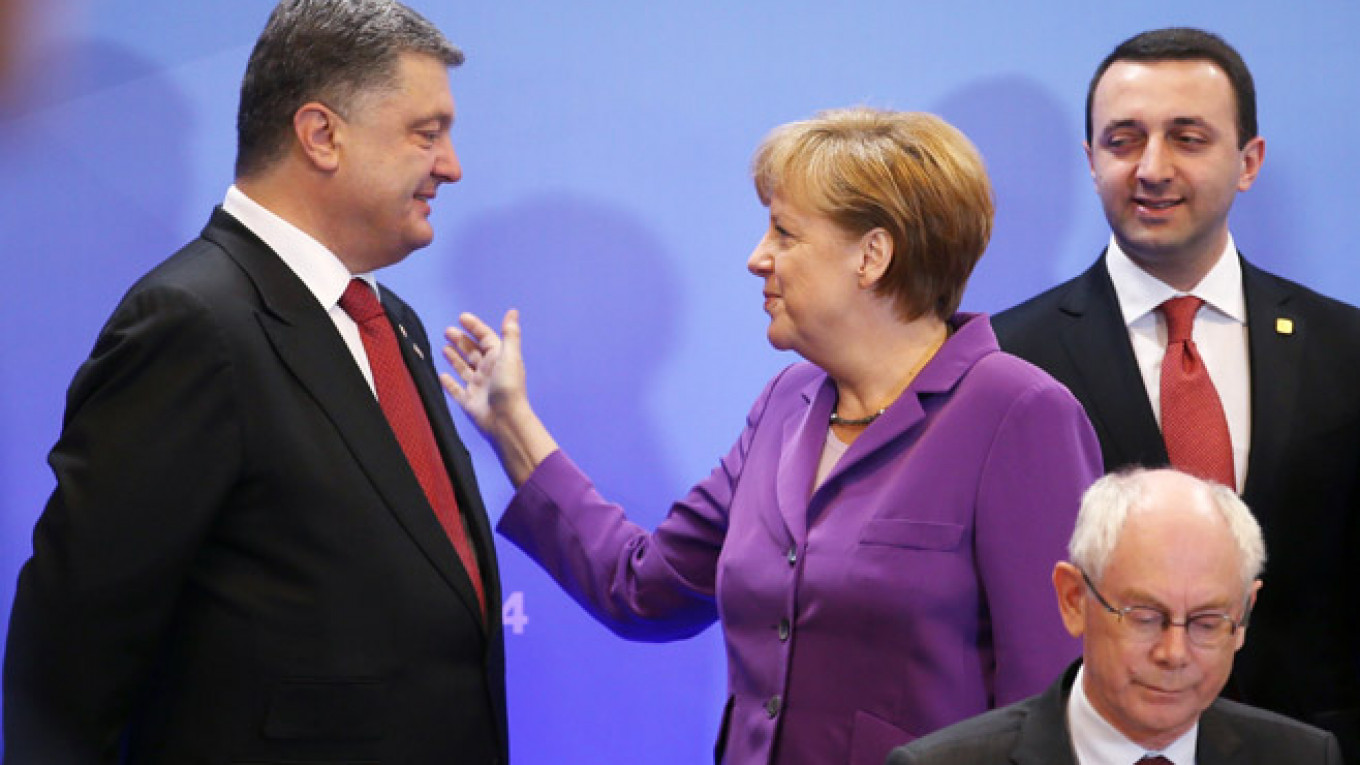"East is East, and West is West, and never the twain shall meet." Rudyard Kipling's image of incompatible political cultures is a tempting description of the battered triangular relations between Russia, Ukraine and the European Union. These relations will only become worse following the tragic destruction of Malaysia Airlines Flight MH17, brutally shot down over Ukraine.
But if recent military events reverse two decades of closer economic and cultural integration between the "East" and the "West" of Europe, it is a matter of political choice and ideology, not economic reality. Ukraine's economic future lies between East and West, not with one or the other.
Although the Kremlin seems to believe that Ukraine's association agreement with the EU was and is the economic arm of a plot aimed at Russia, this view seriously misinterprets both EU policy and the nature of trade relationships. It builds on several misconceptions, chief among them the belief that trade, trade agreements and economic integration are geopolitics in disguise.
The simple fact is that Ukraine will benefit substantially from a trade agreement with the EU.
A good part of these benefits will evolve over time and are conditional on Ukraine's success in reforming its economic and political institutions. The first step is to stamp out pervasive corruption and make its stagnant markets more competitive, which will in turn stimulate more productive behavior and attract more investment from Europe.
Yet more trade and investment with Europe was never meant to be a substitute for economic integration with Russia.
Russia is not only one of Ukraine's most important trading partners, there are also good reasons to believe that Ukraine's trade and investment integration with Russia will accelerate, provided that there are peaceful relations between them. A significant part of Ukraine also shares a language with Russia, further encouraging trade between them.
The Russian reaction to Ukraine's trade agreement with Europe has been remarkably hostile, however. The EU association agreement with Ukraine has been seen as a competitor to the Eurasian trade bloc and, more generally, as an encroachment on Russia's sphere of interest.
Although it is actually in Russia's economic interest to support growing trade and investment between Ukraine and the EU, the Kremlin appears to view trade as the economic branch of a grand geopolitical plan aimed against Russia.
Some commentators even blame the EU for precipitating the current hostilities by offering Ukraine the association agreement in the first place.
Had it not been for the EU's free-trade appetite, they argue, Ukraine and the international community would never have suffered the pains of the past months. Crimea would still be part of Ukraine. Ukraine's east would still be controlled by Kiev, not by Kremlin freelancers.
But trade is about productive economic exchange and should be respected as such. In the long run, it also fosters good institutions for peace, security and stability.
The EU association agreement should have never have been interpreted as anything other than what it was: an opportunity for all involved, even Russia, to improve their economic position and offer their citizens a brighter future.
Fredrik Erixon is director of the European Centre for International Political Economy (ECIPE).
A Message from The Moscow Times:
Dear readers,
We are facing unprecedented challenges. Russia's Prosecutor General's Office has designated The Moscow Times as an "undesirable" organization, criminalizing our work and putting our staff at risk of prosecution. This follows our earlier unjust labeling as a "foreign agent."
These actions are direct attempts to silence independent journalism in Russia. The authorities claim our work "discredits the decisions of the Russian leadership." We see things differently: we strive to provide accurate, unbiased reporting on Russia.
We, the journalists of The Moscow Times, refuse to be silenced. But to continue our work, we need your help.
Your support, no matter how small, makes a world of difference. If you can, please support us monthly starting from just $2. It's quick to set up, and every contribution makes a significant impact.
By supporting The Moscow Times, you're defending open, independent journalism in the face of repression. Thank you for standing with us.
Remind me later.






